US democracy program aimed to Cuba: some history
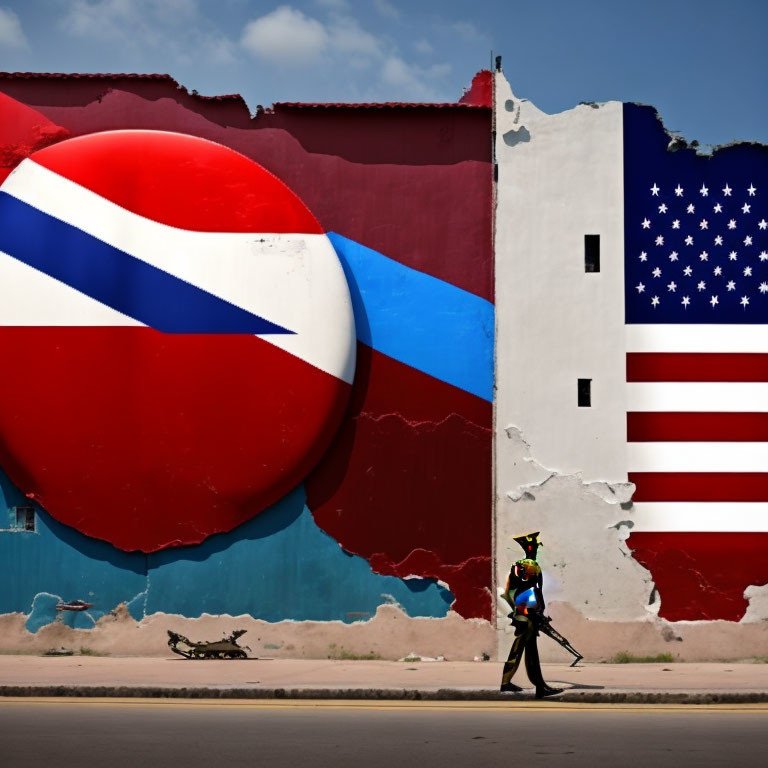
I obtained this image playing with Deep Dream Generator.
The projects financed by the U.S. Government —since 1996— aimed at the patient development of a scenario conducive to political regime change in Cuba, have captured my interest as a researcher during the last eight years. The way in which this strategy is carried out is characterized by a singularity that can be extrapolated to all areas of bilateral relations between these countries.
A useful example to demonstrate that uniqueness is the fact that Cuba is the only country in the world where the Trading With the Enemy Act of 1917 still applies (a list of all the countries that have been sanctioned under that legislation is available here). Another might be that the Caribbean nation is the only one where the U.S. Congress expressly bans tourism —the State Department in 2017 invalidated U.S. passports for travel to North Korea, but this was an executive action—. Or that Cuba is on the list of countries sponsoring terrorism for a reason that the current Colombian government —the biggest stakeholder in the events connected to the sanction— has declared unfair.
The approach I make here to the U.S. government-sponsored Cuba democracy program, which in its genesis was only managed by the Agency for International Development (USAID), but which today also has the participation of the State Department and the National Endowment for Democracy (NED), places the spotlight beyond the value judgments and the history that precedes the research topic. I understand that there are acrimonious positions on the Cuban political system and its practical development. And the same is true for assessing the authority of the U.S. government to advance these so-called democracy programs.
In other words, I dedicate myself to the review of the legislation that serves as the basis for the projects funded by the aforementioned agencies each year in relation to Cuba, working with data retrieved from USASpending.gov and ForeignAssistance.gov, two U.S. government web services that provide information on foreign policy commitments and disbursements of funds.
The controversial nature of the program
In practice, because of the way it's deployed, this program has every ticket to be considered —at least in part— secret or covert, although the U.S. government has appealed to technical definitions of these categories to avoid them (there is a not conclusive analysis of the issue in this report). Instead, it is attributed a sensitive or discreet nature. This results in the information available being extremely limited, which overburdens the mission of the researcher, who must rely on his or her experience and expertise to discover ongoing and completed funded projects.
I had my own encounter with this reality. As the topic interests me, I regularly check USASpending.gov and ForeignAssistance.gov for the faint updates posted on the development of the program, or the call for funding new projects —the latter via Grants.gov—. In December 2019, perhaps by mistake, ForeignAssistance.gov showed for the first time the disbursement of Cuba democracy program funds managed specifically by the State Department's Bureau of Democracy, Human Rights and Labor (DRL), in favor of projects such as IFCore —from Psiphon, a tool funded directly by the U.S. Agency for Global Media— alongside others where the name of the implementing partner was always omitted. I listed all grant identifiers that had never been reported, and ventured into the cul-de-sac that is requesting information —through FOIA— directly from the State Department.
My request was logged with the number 2020-02115, and there I tried to obtain a waiver for all fees associated with its processing, on the understanding that I met the conditions set forth here ("Fee Waiver" section). In January 2020 I received an answer from the agency, denying the fee waiver and, therefore, being Cuban, closing any possibility of moving forward in the process. But most interestingly, all the grants I inquired about —and which I keep in this file exported from ForeignAssistance.gov by that time— disappeared from the website forever.
In addition, reviewing the audits that NGOs like Internews must conduct in correspondence with section 200.501 of Title 2 of the Code of Federal Regulations, I noticed that in 2016 that organization declared four grants related to Cuba that didn't appear registered in USASpending.gov or ForeignAssistance.gov. Going to USASpending.gov's support service, I inquired into the reason, and this was the final answer I got:
The Department of State reviewed the four awards within their financial assistance system and found the following: "Assistance action marked as sensitive. Thus this assistance activity is not DATA Act reportable and has been redacted."
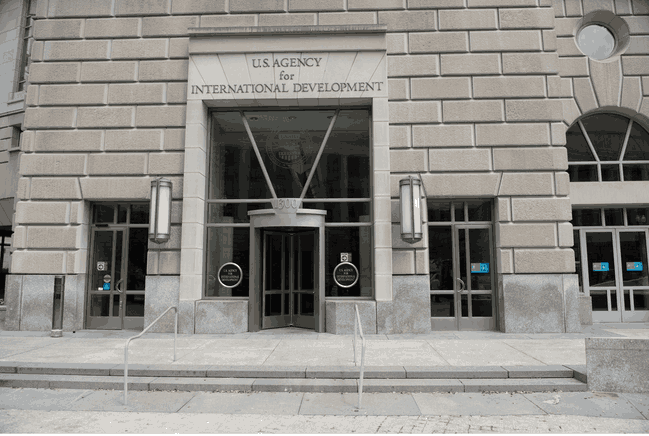 | 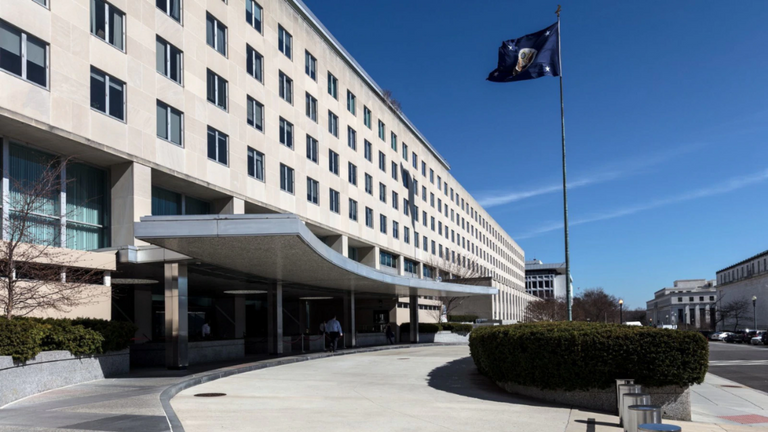 | 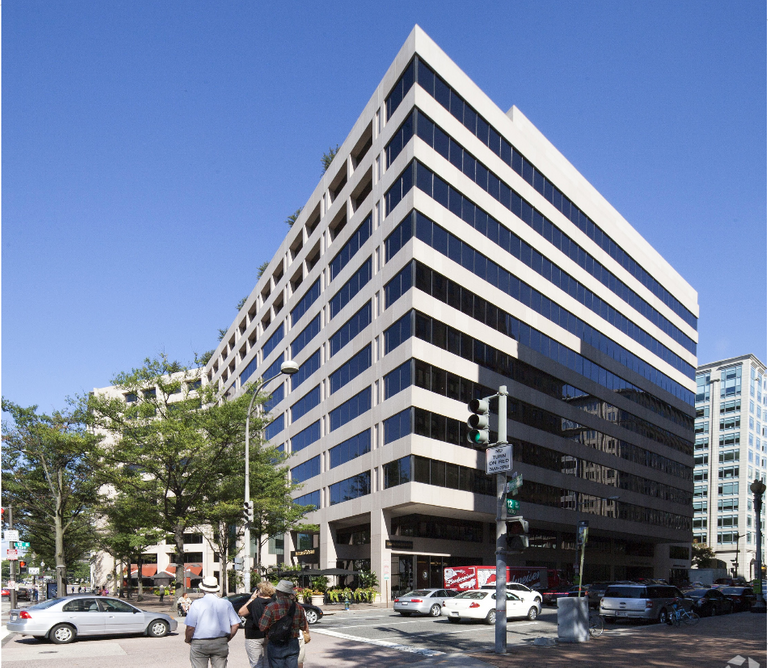 |
|---|
All of the foregoing accounts for the sui generis nature of the implementation of this Cuba democracy program, whose last relevant event was the imprisonment and subsequent prosecution by the Cuban government of U.S. citizen Alan Gross in 2009, who was technically released on humanitarian grounds on December 17, 2014.
Therefore, the reader would've done well to assume that Cuban legislation doesn't recognize any legality in this gamble by Washington, which, to date, has received some 445 million dollars in appropriations from the U.S. Congress. This is in addition to the more than 970 million dollars approved by the same body —since fiscal year 1984— for government radio and television broadcasts directed at Cuba. Both data were constructed from regular monitoring of the Government Accountability Office reports, the Congressional Research Service —the most recent available here— and my own review from FY2022 and FY2023 appropriations acts (explanatory statement for the latter available here).
The Cuba democracy program evolution
The Foreign Assistance Act of 1961 (FAA) is the primary legal source for the implementation of the program. Its section 531 states that «under special economic, political, or security conditions, the national interests of the United States may require economic support for countries or in amounts» that wouldn't be justified elsewhere in the act. In such cases, the President is authorized to provide assistance to countries and organizations to «promote economic and political stability».
Until recently, the FAA wasn't referenced among the instruments authorizing the program, but to the Cuban Democracy Act of 1992 (CDA) and the LIBERTAD Act of 1996 (LIBERTAD). The CDA —also known as the Torricelly Act— allowed, in subsection 1705(g), the provision of assistance through NGOs in support of individuals and organizations promoting nonviolent democratic change in Cuba. This legislation provided the authority to approve the program's first grant, announced by Bill Clinton on October 6, 1995, in favor of the NGO Freedom House.
The LIBERTAD Act —popularly known as Helms-Burton— authorized the U.S. President to provide assistance and provide support to individuals and NGOs to advance democracy in Cuba. With respect to the Torricelli Act, this legislation relaxed the government's authority to channel funds for regime change projects.
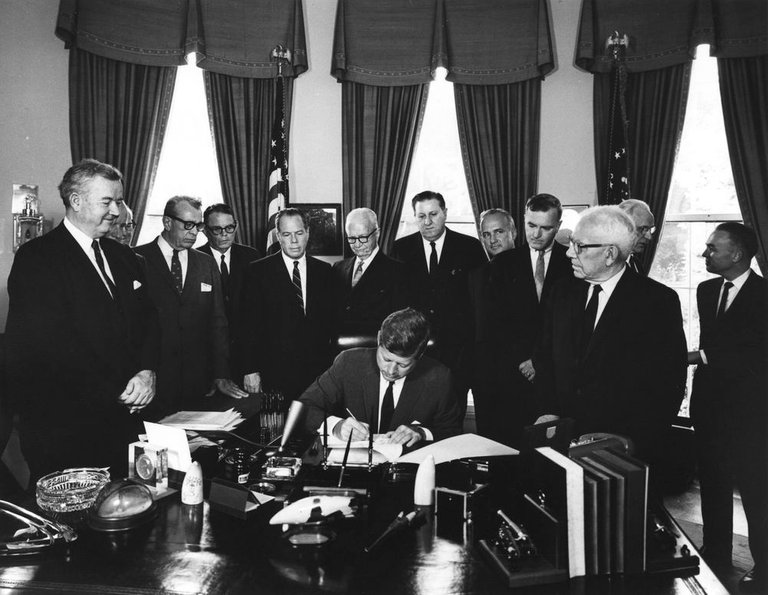 |  | 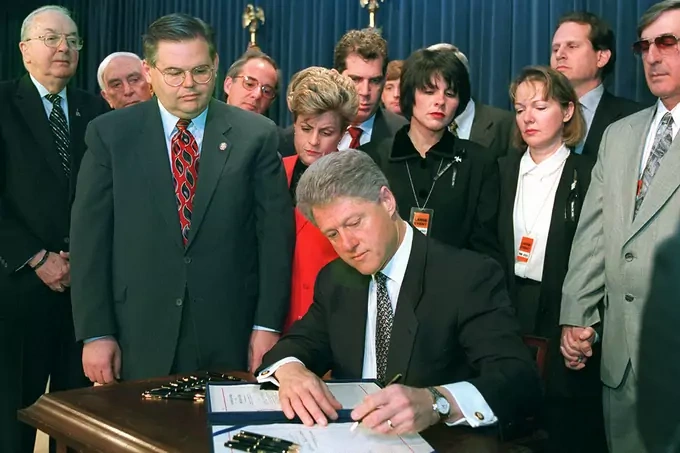 |
|---|
The first conceptualization of the Cuba democracy program appears in USAID and State Department congressional submissions for fiscal year 1997. The United States would provide $2 million in assistance to NGOs that discussed the Cuban government's record on human rights, democracy, and freedom of information, in accordance with the authority provided by both pieces of legislation.
The Economic Support Fund established by the aforementioned section 531 of the FAA, is the vehicle through which most of the monetary resources that finance the U.S. agenda towards Cuba have been transferred —annually— since the start of the program in 1996. Until fiscal year 2004, USAID was the only agency in charge of committing federal funds in its execution, but since then State Department became directly involved in the awarding of grants —with its own design and contractors—, highlighting here the annual flow destined to cover the operations of the Cuban chapter of the NED.
The most important change to date in this crusade came from a government initiative —George W. Bush's Commission for Assistance to a Free Cuba— and specifically from its second report (2006). The commission proposed providing $80 million over the next two years to «increase support for Cuban civil society, expand international awareness, break the regime’s information blockade, and continue developing assistance initiatives to help Cuban civil society realize a democratic transition». It further recommended that subsequent annual funding should be at least $20 million. Some executive budget requests in recent years have proposed a lower value for the program's deployment —the Trump administration even sought to reduce it to zero for fiscal year 2018— and it has been Congress that has championed the Bush-era recommendation.
The Cuba democracy program, while authorized by the FAA, the CDA, and LIBERTAD, is funded through the State Department's budget appropriations approval and execution process, which of course involves the executive and legislative branches and it's introduced here. As part of it, USAID, DRL and the Bureau of Western Hemisphere Affairs operate as federal contractors, issuing notices and awarding grants to NGOs that are ultimately charged with implementing the projects.
The analysis of how the latter happens —as far as the scarce information available allows— is reserved for a second part of this series that begins today, where I will not fail to insert other topics that have attracted me greatly, such as the interesting evolution of covert actions planning in the United States policy.
Thank you very much for your attention.
https://reddit.com/r/hivenetwork/comments/10l2h4c/my_latest_post_via_deep_dives_community/
https://reddit.com/r/hivenetwork/comments/10l2jz0/us_democracy_program_aimed_to_cuba_some_history/
This post was shared on Reddit. Register with @poshtoken, sign up at https://hiveposh.com.
Es un programa interesante para los estadounidense, para la democracia cubana se le debe dar recursos de comunicación...
Saludos @limonta
It's an interesting program for Americans, for Cuban democracy it should be given communication resources....
Greetings @limonta
Gracias a Ud. por la retroalimentación y el apoyo. Saludos cordiales.
Congratulations @limonta! You have completed the following achievement on the Hive blockchain And have been rewarded with New badge(s)
Your next payout target is 100 HP.
The unit is Hive Power equivalent because post and comment rewards can be split into HP and HBD
You can view your badges on your board and compare yourself to others in the Ranking
If you no longer want to receive notifications, reply to this comment with the word
STOPCheck out our last posts:
https://twitter.com/201058667/status/1619590772604674048
The rewards earned on this comment will go directly to the people( @limonta ) sharing the post on Twitter as long as they are registered with @poshtoken. Sign up at https://hiveposh.com.